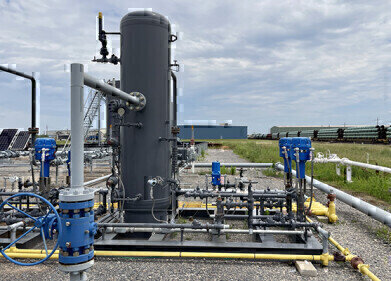Air Clean Up
Are You Losing Sleep Over Pollution?
Feb 07 2019
Pollution has been a huge topic of debate in recent years, with negative impacts sweeping across the globe. Marine life is dying, climate change is increasing, and our physical and mental health is at risk. It’s no wonder there are growing markets for capturing chemicals.
But now, there may be another consequence of pollution to add to the ever-growing list – sleep apnoea. A 2018 paper has reported an apparent link between obstructive sleep apnoea and high levels of air pollution. The two main types of air pollution covered in this study are fine particulate pollution, known as PM2.5 and nitrogen dioxide (NO2), which is related to traffic.
What is obstructive sleep apnoea?
Sleep apnoea is a relatively common condition wherein the walls of the throat relax and narrow during sleep, interrupting normal breathing patterns. The condition results in regularly broken sleep, which has a big impact on a patients’ quality of life and can increase chances of developing other conditions.
When managed correctly sleep apnoea may not drastically impact upon your life. However, without medical assistance or maintenance it can be a dangerous, potentially deadly, condition. Typically, people associate the condition with being overweight, drinking excessive alcohol or smoking. But with this new study shedding light on the impact of pollution, it may open up other avenues to manage or prevent the symptoms of sleep apnoea.
How does pollution impact sleep apnoea?
Lead author, Martha Billings, and her research team were prompted to conduct the study as they found little research surrounding how air pollution may impact sleep. “It seemed likely that air pollution was detrimental to sleep, given that air pollution causes upper airway irritation, swelling and congestion,” she suggested
In order to test their initial hypothesis, the research team analysed data from 1,974 Multi-Ethnic Study of Atherosclerosis (MESA) participants, all of whom had enrolled in MESA’s sleep and air pollution studies. The participants had an average age of 68, with almost half of the group having been diagnosed with sleep apnoea prior.
The team used air pollution measurements from MESA monitoring sites across 6 US cities to estimate the pollution levels in each participant’s home. The results showed that, for every 5 micrograms increase in yearly PM2.5 exposure, a person’s chances of developing sleep apnoea increased by 60%. Having adapted their results to account for external factors, such as BMI, stress levels, diabetes, smoking and high blood pressure, the team concluded that air pollution levels could have a significant impact on the likelihood of an individual developing sleep apnoea.
Events
Apr 22 2024 Hannover, Germany
Apr 23 2024 Kuala Lumpur, Malaysia
Apr 24 2024 Sao Paulo, Brasil
May 05 2024 Seville, Spain
May 13 2024 Munich, Germany














